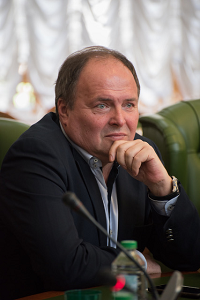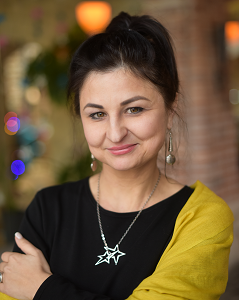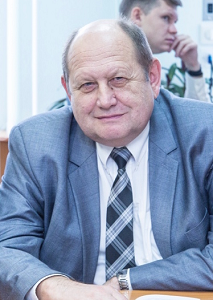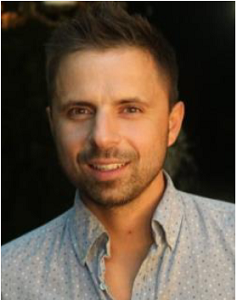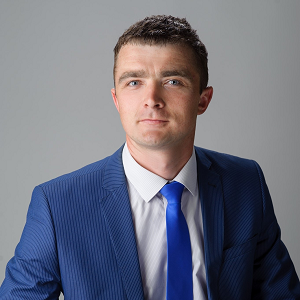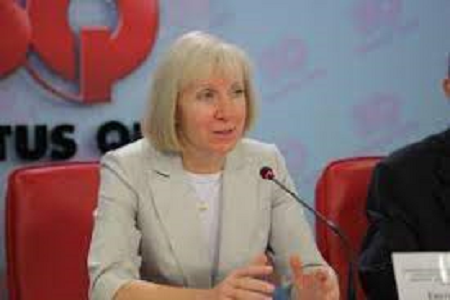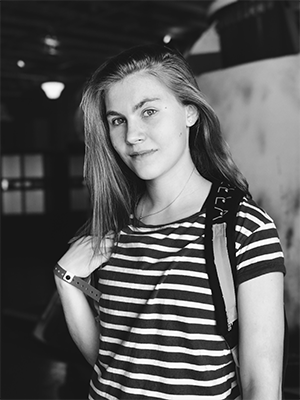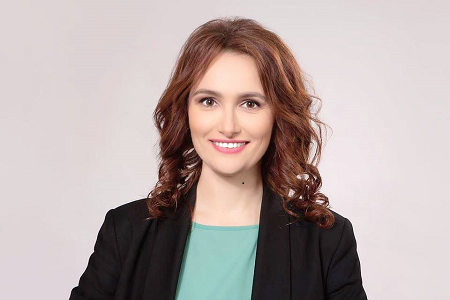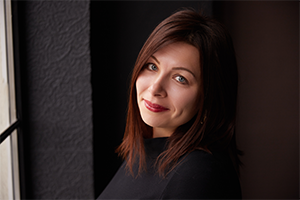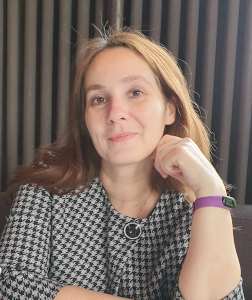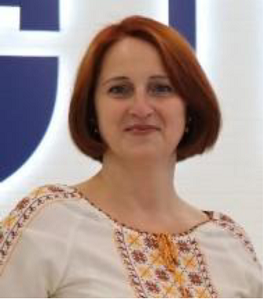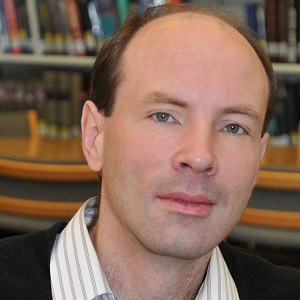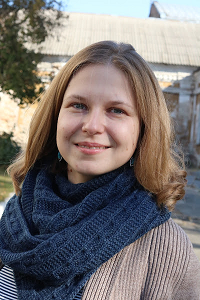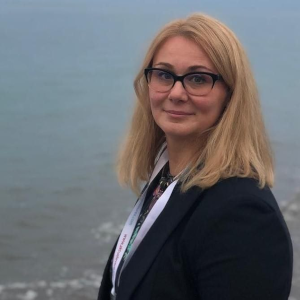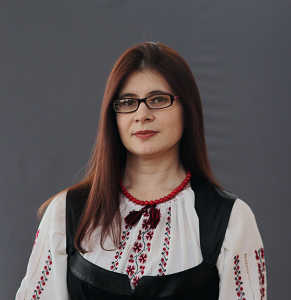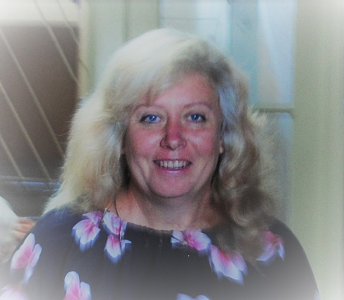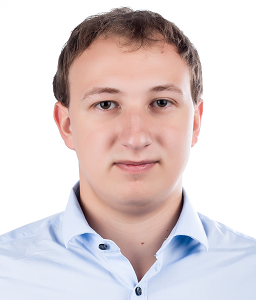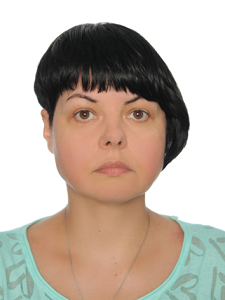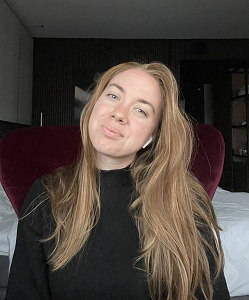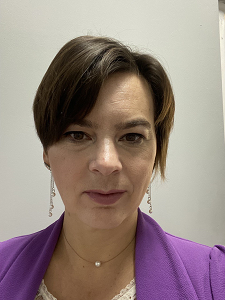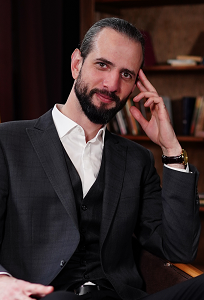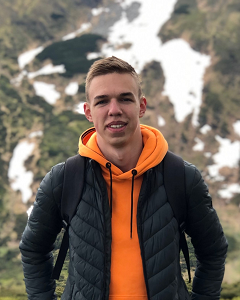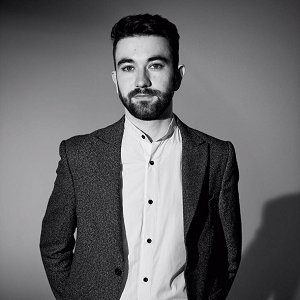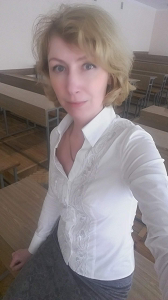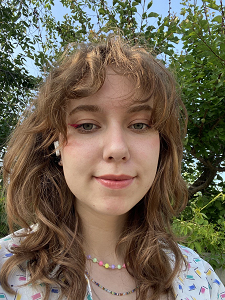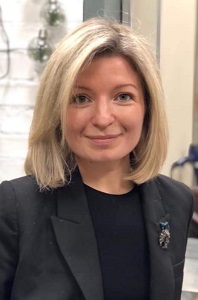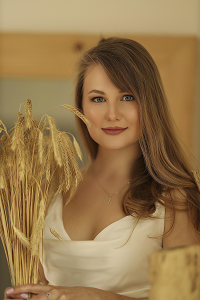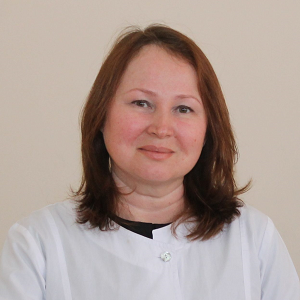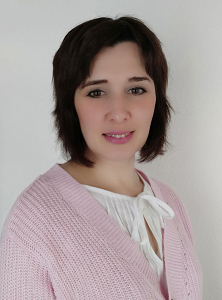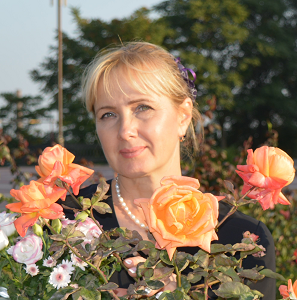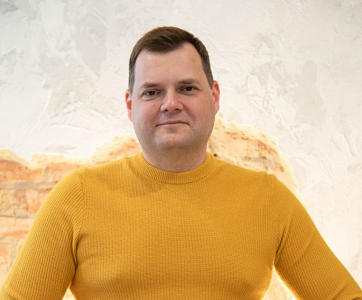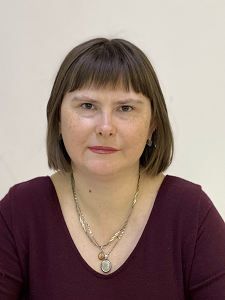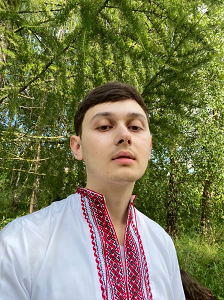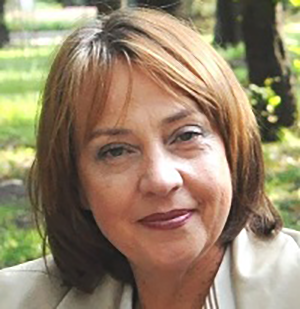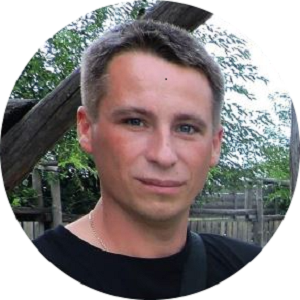Prof. Dr. Viacheslav Tuliakov
National university "Odesa Law Academy"
CV: Viacheslav Tuliakov, Dr, professor of National university “Odessa Law Academy” (Ukraine) , visiting researcher at Castilla La Mancha University, visiting professor at "IE" University (Spain). Since 1983 has worked at the Department of Criminal law and Criminology of Odesa State University (1983-1997) and National University Odesa Law academy (1997-), authoring more than 250 works on aggressive crime prevention, general criminology and victimology theory, victims rights and recovery, theory of punishment, methodology and philosophy of criminal law, criminal policy, human rights protection, international and European criminal law. Corresponding member of Ukrainian National academy of Legal Sciences, Judge ad hoc of European Court of Human rights for the cases against Ukraine.
Presentation title: Approximation of EU Criminal Law to UA legislation
Prof. Iryna Matolich
CV: Iryna Matolich is an Art Historian and obtained a PhD in Art history. She is teacher and Associate Professor at the Department of Design of the Higher Education Institution King Danyla University. Matolich also operates as art manager of the galleries "Art να Mur" and "Bastion" in Ivano-Frankivsk and has curated more than 50 exhibition projects.
Presentation title: DEVELOPMENT TRENDS OF BLACKSMITH'S CRAFT BASED ON THE RESULTS OF THE INTERNATIONAL FESTIVAL “SVIATO KOVALIV” (BLACKSMITH FESTIVAL) IN IVANO-FRANKIVSK
Prof. Dr. Yuriy Ivanov
Research Centre for Industrial Problems of Development of the National Academy of Sciences of Ukraine;. Kuznets Kharkiv National University of Economics
Presentation title: Ukraine: genesis and risks of preferential wartime tax policy
(together with Dr. Vlada Karpova)
CV: Doctor of Sciences (Economics), Enterprise’s Economy and Forms of Business, Kharkiv State University of Economics, Ukraine, 1997
Ph.D in Economic of Enterprises and Management forms and planning of the economy (industry), Kharkiv Engineering-Economic Institute, USSR, Ukraine, 1983
Dr. Ihor Ivanisenko
Kharkiv National University of Radio Electronics, Ukraine
CV: Ihor Ivanisenko is Associate Professor at the Computer Engineering Faculty and Deputy Head of the IT-Outsourcing Training and Production Center at Kharkiv National University of Radio Electronics (KNURE). He graduated from the same university in 2017 and obtained a PhD in Technical Sciences. As of now, he also works as a senior lecturer at the Education Center for International Students and operated as Deputy Manager of the International Office at KNURE until September 2020. Ivanisenko has gained further work experience as invited lecturer of the Management and Business Department at the Kharkiv National University of Economics, as senior lecturer of the Department of Information and Control Systems at Kharkiv National University of Internal Affairs and as Laboratory Manager of the Computer Laboratory at the Education Center for International Students of KNURE. He is author of more than 50 papers and has participated in a variety of conferences and workshops. His research and development activities include ІТ-infrastructure, self-similarity network traffic properties in the framework of load balancing, computer networking and distributed computer systems.
Presentation title: Models and Methods of Analysis of Self – Similar Network Traffic
Abstract: The active development of information technology and the expansion of information services is largely based on scientific and technological developments in the field of telecommunications networks. Research shows that modern network technologies are growing ahead of theoretical and analytical understanding of network interactions. An important feature of information traffic is that it belongs to self-similar stochastic processes. For self-similar traffic, the methods of calculating the characteristics of the computer network (channel bandwidth, buffer capacity, etc.), based on classical models, do not meet the necessary requirements and do not allow for adequately assessing the load on the network.
Prof. Dr. Vitalii Dankevych
Polissia National University
CV: Dean of the Faculty of Law, Public Administration and National Security in Polissia National University Professor of Department of International Economic Relations and European Integration in Polissia National University.
Presentation title: Ukrainian harvest 2022 and global food security
Abstract: Even before the start of Russia's war against Ukraine, food prices rose significantly. Military action on the territory of Ukraine causes a significant increase in world food prices. Russia's aggression against Ukraine threatens food and humanitarian security in many countries around the world. Due to the invasion of Ukraine by Russian troops, Russia could cause humanitarian food crises and danger in some countries around the world. Ukraine is among the TOP-5 world food exporters, so in less than a month the whole world will feel the effects of the war in Ukraine. According to the US Department of Agriculture, Ukraine accounts for 16% of world corn exports (with 30% of corn imports to China coming from Ukraine), 12% of wheat exports, 50% of sunflower oil exports.
Dr. Olesia Vashchuk
Chairwoman of the Scholars Support Office, Ukraine
CV: Dr. Vashchuk has fifteen years of experience in the educational, social, non-commercial sphere. She earned a Doctor of Law degree from National University “Odessa Law Academy” in Ukraine, and Master’s degree in Accounting and Auditing from Priazovsk State Technical University in Ukraine, and Master’s degree in Psychology from South Ukrainian National Pedagogical University named after K. Ushinsky in Ukraine. Dr. Olesia Vashchuk is Chairwoman of the Young Scientists Council at the Ministry of Education and Science of Ukraine, is Chairwoman of the Scholars Support Office. The Council unites all young scientists of Ukraine and together with them implements more than 200 projects a year. In general, more than 16,000 young scientists are involved in the activities of the Council. Olesia has an academic title of Professor of the Department of criminalistics at National University “Odessa Law Academy”. As a Chairwoman of Ukrainian non-profit organization International Foundation of Development” she introduced a few programs for the development of an individual, of national societies, and the program for providing a necessary life minimum. Previously she worked at National University “Odessa Law Academy” on legal assistance, educational process organization, information and analytical support. Olesia acted as an expert on education and research in Ukraine, USA, Poland, Lithuania, China, Latvia, Hungary, Moldova, Romania, Germany, Belarus and etc. Because of this, she gained strong skills in project coordination and implementation. Olesia is the author of more than 180 scientific and journalistic works. She is interested in optimization, innovation and development.
Presentation title: Scholar Support Office (SSO)
Prof. Dr. Zinaida Smutchak
Flight academy of National aviation university
Presentation title: Russian aggression and forced migration in Ukraine
CV: In 2000 graduated from the Poltava Cooperative Institute, majoring in «Accounting and Auditing». In 2001 graduated from Kirovohrad State Technical University, majoring in «Accounting and Auditing». In 2011 defended thesis for the degree of candidate of economic sciences on the topic: «Harmonization of social and labour relations in the conditions of modernization of the national economy».
Member of the specialized academic council K 23.073.03 with the right to accept for consideration and conduct the defense of dissertations for obtaining the scientific degree of candidate of economic sciences in the specialties 08.00.03 «Economics and management of the national economy» and 08.00.07 «Demography, labour economics, social economy and politics» at the Central Ukrainian National Technical University.
Anastasiia Mikhieieva
Petro Mohyla Black Sea National University, Mykolaiv.
Presentation title: The Holocaust Trauma and Autobiographism in Ida Fink’s and Charlotte Delbo’s Stories
CV: My name is Anastasiia Mikhieieva. I am a teacher and PhD student of the Philology Department at Petro Mohyla Black Sea National University in Mykolaiv, Ukraine. The topic of my dissertation is "Trauma and Temporality in Women's Holocaust literature of the First Generation". My scientific interests include: the impact of the Holocaust on the formation of identity and the category of time in literaure. Moreover' I am involved in other scientific projects connected to Holocaust history, memoralization and post-traumatic disorders caused by military conflicts.
Abstract: The research is based on a study of short stories collections by Israeli writer Ida Fink’s, All the Stories, and French writer Charlotte Delbo’s, Auschwitz and After, to reflect the impact of the Holocaust on autobiographical elements in their work. The authors are representatives of the first generation of Holocaust survivors, which means that the genocide of Jews during World War II was a personal traumatic experience for them. Since autobiography has been considered a documentary genre with its own peculiarities, works on the Holocaust were seen as historical evidence of this event. Under the influence of trauma, the genre of autobiography can be modified in the literary text in such a way that the line between autobiography and fiction is blurred. Ida Fink and Charlotte Delbo write short stories with fictional narrators, but all the situations are certainly the experience of the writers themselves, who turn to the autofiction and conventions of F. Lejeune's "autobiographical pact". The aim of the study is to definethe peculiarities of the autobiographical genre, analyze its functions in the Holocaust literature and identify poetic elements of autobiography.
Prof. Dr. Iuliia Pavlova
Lviv State University of Physical Culture, Ukraine
CV: Professor (2020), Doctor of Science in Physical Education and Sports (2017), Senior Researcher (2013), Ph.D. in Biology (2008). Member of the Scientific Council for the defense of dissertations (sports, physical education, rehabilitation). Scientific interests: quality of life, physical activity, pro-health attitudes and anxiety, anxiety levels in a threat of experiencing military conflict, impact of Covid-19 on mental health and wellbeing, physical literacy, physical education programs, croc-culture adaptation and validation of measure
Presentation title: Network on evidence-based physical activity in old age (PhysAgeNet)
Prof. Dr. Olena Mikulich
Lutsk National Technical University
Presentation title: Modelling mechanical exciting in foam polymers based Cosserat elasticity
Abstract: The current state of creation and production of new materials, such as auxetics, intelligent materials and others with unusual properties, opens broad prospects for their use in various fields, in particular in medicine and engineering. However, the use of such materials requires careful justification and prediction of their mechanical behaviour under the impact of force, temperature and other influences. To describe the mechanical behaviour of new porous materials, refined models of continuous mechanics, such as Cosserat elasticity, which take into account the influence of shear-rotational deformations, are used.
Dmytro Bondarenko
University of Szeged
CV: is a historian, a doctoral student of the Department of Contemporary History, the University of Szeged (Hungary), engaged in a comparative analysis of the processes of the counter-revolution and restoration in Finland (the Kingdom of Finland), Hungary (the Kingdom of Hungary), Ukraine (the Ukrainian State), and Don (the Almighty Don Host) and the author of 1 book, 2 book chapters and more than 20 articles on the topic of the doctoral dissertation “ The Monarchist Counter-revolution in Central and Eastern Europe, 1918-1920: A Comparative Analysis,” published in Ukraine, Romania, Moldova, and Poland, in Russian, Ukrainian, and English languages.
Presentation title: The Monarchist Counter-Revolution in Central and Eastern Europe: Definition, Geographical Frame, Chronology
Abstract: It is widely known that Central and Eastern Europe is a specific historical region marked by the outbreak of two World Wars and the spread of Bolshevism. At the same time, another historical phenomenon, such as monarchist counter-revolution, also has its origins in Central and Eastern Europe but is still little-studied or sometimes neglected by scholars. The monarchist counter-revolution was a sui generis response to Bolshevism in some newly independent states which emerged on the territory of the former Russian Empire and Austria-Hungary, for instance, the Kingdom of Finland, the Ukrainian State, the Almighty Don Host, the Baltic Grand Duchy, the Kingdom of Hungary. Thus, this research is geographically limited to the territory of the European part of the former Russian Empire (Finland, the Baltic States, Ukraine, Don) and Hungary. It is hardly possible to create the ultimate periodization of the monarchist counter-revolution in Central and Eastern Europe because each case took place at a different time and had distinctive features. Nevertheless, in general, the process started on the state periphery as a reaction to Bolshevism and was usually accompanied by foreign intervention and finished the restoration of the pre-revolutionary order abolishing not only the Bolshevik legislation but also the revolutionary changes as a whole.
Dr. Svitlana Chukanova
The National University of Kyiv-Mohyla Academy
CV: Head of a sector at the NaUKMA Library, American Library Coordinator, senior lecturer at the Psychology and Pedagogy Department at The National University of Kyiv-Mohyla Academy. Joined Ph.D. program in pedagogy at The National University of Kyiv-Mohyla Academy in 2012 with a further dissertation defense at Borys Hrinchenko Kyiv University. 29th of September 2016 - received a Ph.D. (Ed). (Candidate of pedagogical sciences in 13.00.04 - Theory and methods of vocational training ). The Ph.D. dissertation on the topic “Professional training of the Library and Information Science Specialists in the USA Higher Education System”. Defended on June the 7th 2016 MA in Translation / Interpretation (Kyiv National Linguistic University, 2006-2011), Open World Leadership Program Alumna 2013 .
Presentation title: Types of assignments recommended during RDM practice training for PhD students in Ukraine
Abstract: RDM training can be performed with the use of different approaches and with the involvement of open resources and courses. The most known platforms for RDM training are Research Data MANTRA – a free online course developed by the University of Edinburgh; DataONE Education Modules; FOSTER. By looking closely at these curriculums one can observe the common elements – the disciplines are aimed to train abilities in supporting research data lifecycle stages. The main topics are oriented to explain what research data is, how to organize it, how to process it, and reuse it. There are a lot of useful resources developed by the librarians for researchers and for colleagues - librarians. Among professional library training resources, I can name MOOCS on RDM: Research Data Management and Sharing (developed by the Curating Research Assets and Data Using Lifecycle Education (CRADLE) Project in collaboration with EDINA at the University of Edinburgh) on Coursera platform; Delivering Research Data Management Services (developed by the University of Edinburgh, Digital Curation Center, and Research Data Netherlands).
Dr. Olga Polotska
is Executive Director of the National Research Foundation of Ukraine (NRFU) and Associate Professor at V.N. Karazin Kharkiv National University. After obtaining her PhD in Philology (Germanic languages) in 2004, she was Head of the Overseas Clients’ Department at Gryshchenko Clinic-IVF until 2020, Head of the English Language Department, (School of Foreign Languages) and Senior Lecturer of the Department of English Philology at V.N. Karazin Kharkiv National University until 2019. Polotska has a wide experience in teaching and lecturing, administrative experience in the field of education and international partnership as well as developed skills of organization of scientific conferences, seminars, contests and olympiads. During her time at V.N. Karazin Kharkiv National University, her research was mainly connected with ways of building a sustainable system of academic and research integrity in universities. She has participated in various international partnership projects in the field of management and organization of education. In 2019, Polotska completed the course ‘Content Marketing’ at the Academy of Internet-Marketing WebPromoExperts, Marketing School of Kyiv-Mohyla Business School. She is author of over 65 research publications.
Presentation title: Ukrainian Research System in the Context of the War
Abstract:
- the NRFU activities before and during the war
- current situation with the Ukrainian research system
- threats that Ukrainian scholars experience: UA.Science Reload statistics.
Dr. Olena Synchak
Ukrainian Catholic University, Lviv
Presentation title: Web Dictionary of Ukrainian Feminine Personal Nouns: from tradition to innovations
Abstract: Abstract The Web Dictionary of Ukrainian Feminine Personal Nouns (WDUF) (2022, published on r2u.org.ua) will be under scope of concideration. The entry structure of this dictionary will be presented, as well as coverage of Ukrainian feminine personal nouns in comparison with other dictionaries will be provided. The use of the General Regionally Annotated Corpus of Ukrainian (GRAC) in the compilation of the WDUF is explained, and the results of corpus-based explorations of feminine personal nouns are presented. The presentation concludes with a summary of the WDUF as a dictionary of a new generation in Ukrainian lexicography. Keywords Feminine personal noun, feminine derivative, feminine term, Ukrainian, dictionary, Web Dictionary of Ukrainian Feminine Personal Nouns, online dictionary, r2u.org.ua, Ukrainian corpus, General Regionally Annotated Corpus of Ukrainian, GRAC
Prof. Kateryna Osadcha
Bogdan Khmelnitsky Melitopol State Pedagogical University
CV: Today, specialists in computer graphics and digital design must not only be able to retouch and draw images in a graphic editor, make 3D models and realistic visualizations, work with subject photography, create creative concepts and show their ideas on sketches, but also have tools graphics programming, development of VR and AR projects, virtual and 3D drawings and 3D printing technologies. Therefore, the content of training in computer graphics and digital design should include familiarization with both traditional knowledge of fine arts and digital technologies and software tools for creating various digital products.
Presentation title: Digital design trends and their impact on the professional training of designers
Abstract: Nowadays, the creation of works using a computer, graphic or screen tablet, stylus and other technical devices has become a new direction of fine art. Modern digital art is rapidly developing and penetrating many spheres of human activity, capturing positions in the design of books, posters, advertising products, the computer game industry, and cinema. Keeping the basic principles unchanged, it continues to improve. These processes, in turn, need to be understood and generalized in order to modernize the content of the training of modern specialists in the field of computer graphics and digital design. The report analyzes modern trends in digital design. Based on the analysis, it is concluded that modern digital design technologies should be studied during the professional training of future designers. The presentation presents examples of the works of students studying under the educational program "Digital Design" at Bogdan Khmelnitsky Melitopol State Pedagogical University.
Dr. Oleh Yermakov
V. N. Karazin Kharkiv National University
CV: Oleh Yermakov received the B.Sc. degree (cum laude) in Applied Physics from V. N. Karazin Kharkiv National University, Ukraine, in 2014, the M.Sc. degree in Photonics and Optical Information Technologies and PhD in Optics from ITMO University, St. Petersburg, Russia in 2016 and 2020, respectively. Since October 2019 he has been with V. N. Karazin Kharkiv National University. He is a member of SPIE, Optica, IEEE, EuMA international communities. His research interests include: photonics, plasmonics, surface waves, metasurfaces, fiber optics, polarization, spin-orbit photonics, numerical methods.
Presentation title: Metasurfaces for communications, sensing and energy
Abstract: Metasurfaces are two-dimensional periodic subwavelength nanostructures enabling to engineer light properties on demand. In this talk, we will discuss the main principles of metasurfaces and discover several related applications.
1. Metasurfaces for planar technologies. We show the extraordinary properties of metasurfaces allowing to control the in-plane highly localized optical signal paving a way towards the integrated circuits, on-chip devices and planar optical networks.
2. Metasurfaces for fiber optics. We demonstrate the enhancement of the light collection into fiber by several orders of magnitude via the fiber tip nanostructuring. Remote light collection is highly important for a plethora of applications including spectroscopy, endoscopy, biosensing, and quantum communications.
3. Metasurfaces for solar energy. One of the most significant factors responsible for optical losses in solar cells is the reflection of the light from their surface, whereas almost half of energy could be wasted. We propose the metasurface-based antireflective coatings boosting the capabilities of solar cells via the efficient broadband reflection suppression outperforming the existing counterparts.
Prof. Dr. Tetyana Blyznyuk
Simon Kuznets Kharkiv National University of Economics
CV: Prof. Dr. Blyznyuk is a professor at the management and business department. She currently lectures different courses such as Cross-cultural Management (in Ukrainian and English), Risk Management (in Ukrainian and English), Business Ethics and Communication (in English). Her research interests include cross-cultural features of national leadership style and interactions of national cultures in business environment.
Presentation title: Change of the young generation values during the war in Ukraine
Abstract: The war in Ukraine has changed the lives of all inhabitants. Many of the Ukrainians were forced to leave their houses and move abroad or to another Ukrainian region. In addition to changing Ukrainian inhabitants location, the war also changed their goals in the life. One way of evaluating life goals and their achievement is value analysis.
The purpose of this study is identification of changes in the structure of values of the Ukrainian young generation (generation Y) in Kharkiv region because of the war in Ukraine. The value structures of the same generation were compared for three periods (2016, pandemic period 2020-2021 and April-May 2022).
As a result, it was confirmed that the war significantly changed the life position and life goals of the Ukrainian generation Y, while because of the covid-19, the structure of terminal values practically unchanged. The ways of life goals achieving (the structure of instrumental values) have changed both under the impact of the pandemic and the war in Ukraine.
Daria Yashkina
V.N. Karazin Kharkiv National University
CV: I am a third-year Ph.D. student at the V.N. Karazin University (Kharkiv, Ukraine). I have spent my entire adult life at the University: I received a bachelor degree in sociology in 2017 - a master's degree in 2018. And since 2019 I have been writing a PhD thesis on the topic: “The Phenomenon of “Solo-Living” in (Post) Modernity”. All my work experience is mainly in managing various processes and working with people: 2019 - specialist – academic secretary’s service of V.N. Karazin National University. Responsibilities: editing the website assistance in organizing meetings; specialist – Student Trade Union of V.N. Karazin University. Responsibilities: coordination of student projects, work with documents; current – junior researcher – School of Sociology of V.N. Karazin University.
Presentation title: Far but close: solo-living and long-distance relationships
Prof. Dr. Sergiy Panasyuk
European University and Ukrainian-American Concordia University
Presentation title: Legal challenges and war reality, Ukrainians should not mislead themselves
Abstract: Because of the terrible situation that Ukrainians are in, I mean a terrible war started by an international aggressor Russian Federation, the emotional state of Ukrainians may lead to irrational views. Because of that, the Ukrainian Nation has the real risk of accepting autocracy instead democracy. 58% of Ukrainians said that the most important thing for Ukraine now is a strong leader, but only 14% are supporters of the democratic system. There is a discussion in our society about such limitations as a ban for almost all men from 18 to 60 can't cross a national border to leave Ukraine. And despite such governmental actions violating the Constitution, many Ukrainian people support it. Ukraine has a really challenging situation in all spheres, and we face the real risk of losing part of our sovereignty. That is why the whole nation should be consolidated. But, In the author’s opinion, any economic, political, or other situation, or even war, can't cancel law and democratic principles of government. That is why Ukrainians should not mislead themselves that a strong leader is better than democracy, as they believe now.
Dmytro Parnak
National University of Kyiv-Mohyla Academy
CV: Dmytro Parnak is currently obtaining a Bachelor's degree in Software Engineering at the National University of Kyiv-Mohyla Academy. He is actively engaged in social work and volunteering, is interested in Ukrainian NLP, as one of the very important branches of computer science nowadays, and would like to contribute to its development. Language skills: Ukrainian - native, English - upper-intermediate, German - beginner.
Presentation title: Ukrainian NLP: creating a CV parser
Ruslan Zaporozhchenko
V.N. Karazin Kharkiv National University
CV: My name is Ruslan Zaporozhchenko. I am a PhD student of the Department of Political Science at Karazin University (Kharkiv, Ukraine). The topic of my dissertation research is "Political Forms of Space Organization in the Context of Modern Globalization Processes". For more than 6 years I have been engaged in scientific research covering the issues of empires and modern states, power and sovereignty, hegemony and ideology, political space and order. I explore the way in which the various contemporary "polities" organize space, constitute political order, and reproduce structures of violence, consent, submission, and coercion. I analyze all this with an emphasis on the processes of globalization and geohistorical transformations.
Presentation title: (Post)imperial space and its transformations: from the war in Ukraine to social protests around the world
Abstract: The war in Ukraine has become, perhaps, the most significant event of the 21st century. However, this war has also become a bifurcation point in a vast global space, where almost every month there are social movements, attempts to overthrow the government, pre-revolutionary events, and so on. I see in this a certain geohistorical pattern, within which the Empire is located. It was the empire - as a political form of space organization and a form of political order at the same time - that for many centuries was a universal form of space optimization. Empires arose in different centuries, in different regions, and had different durations of existence. However, one fact remained important: the empire always "played" with space, which laid certain risks for potential states of the future. Let us recall the processes of decolonization around the world in the 20th century. We have seen how these processes led to protracted liberation (colonial) wars, revolutions and uprisings, civil wars, and so on. That is, a certain "post-imperial paradox" arose when it was necessary to simultaneously fight the empire and begin the process of state-building.
Dr. Iryna Levchyk
Ternopil Volodymyr Hnatiuk National Pedagogical University
CV: Prof. Levchyk graduated Foreign Languages Department at Ternopil Volodymyr Hnatiuk State Pedagogical University in 2004 with a Master's degree and worked since then as an ESP teacher at Pedagogy and Psychology Department at her alma mater. She earned her Ph.D. at the South Ukrainian National Pedagogical University named after K. D. Ushynsky in 2014. From 2018 to 2022 she worked at the Chair of Foreign Languages as an Associate Professor and in 2022 Prof. Levchyk started her post-doctoral research at the Department of English Philology and Methods of Teaching English. The scientific interests include CLIL, EMI, metacognitive awareness in SLA in tertiary education, and reaching sustainable development goals in ELT.
Presentation title: Personality Oriented and Pragmatic Approaches in Realization of Journalism English Integrated Learning
Abstract: The conference speech reveals the feasibility of the application of the personality-oriented and pragmatic approaches in the implementation of integrated training of professional-oriented English-language communication of future journalists. A personally oriented approach provides conditions for the development of personal qualities of students, focusing on their individual experiences, opportunities, needs, and interests in integrated language learning. In the context of professionally oriented English language education scientists appeal to principled pragmatism in regard to the concept of the secondary professional language personality of graduates.
Marharyta Budenkova
National University of "Kyiv-Mohyla Academy", Ukraine
Presentation title: Creating web application for supporting communication between students and teachers
CV:
Dr. Yuliia Skrynnik
V. Karazin Kharkiv National University
CV: Yuliia Skrynnik was born in Ukraine in 1993. She is Doctor of Philosophy (Philology), Associate Professor at the English Philology Department of School of Foreign Languages of V. N. Karazin Kharkiv National University. The degree was earned in 2019.
Previous publications include: 1. Skrynnik, J. (2019). Variativity of a speaker’s verbal and non-verbal behavior in English business discourse. In E. Bernardez, J. Jablonska-Hood, K. Stadnyk (Eds.). Cognition in context. New insights into language, culture and the mind. Berlin: Peter Lang GmbH Internationaler Verlag der Wissenschaften, 64, 153–161. 2. Skrynnik, Yu.S. (2021). Super-verbal components as discourse-forming medium for social roles. Science and Education. A New Dimension. Philology, 9 (74), Issue 251, 71–76. Her main research interests are in discourse studies, ecolinguistics, verbal and non-verbal communication, sociolinguistics.
RESEARCHGATE: https://www.researchgate.net/profile/Yuliia_Skrynnik;
ORCID: https://orcid.org/0000-0001-7592 4011;
LINKEDIN: linkedin.com/in/julia-skrynnik-783911154.
Presentation title: The Notion "Popularity" in the Entertainment Discourse
(together with Professor, Doctor of Science (Philology) Lyudmyla Vasylivna Soloshchuk)
Abstract: The research focuses on revealing the essence of the notion “popularity” in the entertainment discourse based on the research of the lingual and non-lingual behavior of influencers – talk show hosts. “Popularity” as an object of linguistic research is increasingly attracting the attention of scholars studying the linguo-cognitive, communicative-pragmatic, linguo-semiotic, sociolinguistic, linguistic, and gender aspects of its verbalization. Verbal, nonverbal and extra-linguistic means of “popularity” creation on the examples of the influencers’ performances are characterized. The main qualities of popularity are presented in the research on the basis of the examples demonstrating the specific lingual and non-lingual means in the speeches of well-known English-speaking influencers.
Dr. Iryna Kompanets
Taras Shevchenko National University of Kyiv
Presentation title: "Biomedical research in Taras Shevchenko National University of Kyiv (Ukraine): the role of immune cells in obesity"
Abstract: Inflammation is thought to be the hallmark of obesity. The production of adipokines and chemokines by adipocytes causes macrophage recruitment to the adipose tissue resulting in low-grade local inflammation and permanent oxidative stress. The aggravation of inflammatory conditions leads to proinflammatory cytokine production by blood monocytes and the establishment of the inflammatory state in distant organs and tissues. Substantial progress in obesity study has been achieved on animal models of high-fat diet-induced obesity whereas the mechanism of progesterone-induced obesity remains incompletely clarified. Progesterone (Pg) is widely used for contraception and hormone replacement therapy. It enhances food intake and therefore causes significant weight gain by increasing fat deposition. The current study focused on clarifying the mechanisms of inflammatory response of immune cells in Pg-induced obesity and revealing the effects of yeast melanin and cerium dioxide nanoparticles as potential anti-obesity drugs.
In our studies, the female rats treated with Pg within 28 days demonstrated the rise of body weight up to 27% and elevation of body mass index by 2.3-times suggesting the development of obesity. We have shown the stimulation polarization of peritoneal macrophages towards the M1 pro-inflammatory type (enhanced NO-production) and suppression of their M2 polarization (decreased arginase activity). It was associated with the increase of pro-inflammatory cytokine IL-1 and IFN-γ levels and the decrease of IL-4, IL-10, and TGF-β anti-inflammatory cytokine levels in the blood serum of Pg-treated rats. The serum level of medium size circulative immune complexes was elevated suggesting the aggravation of the inflammatory process. These results reflect the development of systemic inflammatory response in Pg-induced obesity and are consistent with the reported data from murine high-fat diet models.
Antioxidants have attracted particular attention as a promising tool for oxidative stress alleviation and therefore could be prospective drugs in obesity treatment. In the current study, we focused on melanin from Antarctic black yeast Nadsoniella nigra and established its anti-obesity and anti-inflammatory effects on an animal model of Pg-induced obesity. Melanin prevented the weight gain and the fat mass growth caused by progesterone. It also suppressed the M1 polarization of peritoneal macrophages decreasing NO production and ROS level in peritoneal macrophages and decreasing the circulative immune complexes level. Melanin possesses the same effects when it is used simultaneously with Pg (prophylaxis model) and one month after Pg treatment (cure model).
Cerium dioxide nanoparticles (CeO2NPs) are promising potential therapeutics due to their ability to destroy reactive oxygen species and to very low toxicity. They may be useful for preventing or ameliorating oxidative stress-related pathologies, cancer diseases, and aging. These nanoparticles may have the potential to alleviate the negative effects of obesity - the disease associated with long-term oxidative stress and inflammation. Our data from the rat model of Pg-induced obesity indicate that cerium dioxide nanoparticles prevent weight gain in rats and potently suppress the M1 polarization of peritoneal macrophages decreasing the NO-production.
Taken together, our results show that systemic inflammatory response in Pg-induced obesity involves the resident lymphocytes of peritoneal cavity and is suppressed by antioxidant compounds yeast melanin and cerium dioxide nanoparticles. Despite the available data, further studies are needed to deeply understand the mechanisms of inflammatory response in obesity of different origins and to clarify the role of antioxidants in its treatment and prevention.
Prof. Dr. Tetyana Panyok
H.S. Skovoroda Kharkiv National Pedagogical University.
Presentation title: Historical-cultural and lighting context of artistic education in Ukraine in the beginning of the 20th century
Abstract: The purpose of the work is to reveal artistic-pedagogical experience in the work of Ukrainian artists of the ХХ century. The methodology of artistic education is considered in the context of the general development of the main Ukrainian and Western European art tendencies with the usage of a cultural approach. The article analyze the historical-cultural circumstances forming the fine-art education in Ukraine for 20 years XX st. We study a new concept and design direction of national art education. It is shown that this 20 years marked as the emergence the fine-art education in Ukraine with focus on the revival of ethnic and cultural traditions.
Dr. Iurii Lukianchuk
Lutsk National Technical University
Presentation title: QR+3D. A combination of technologies and the creation of unique accessories that are useful and vital.
Abstract: We have proposed a combination of QR and 3D technologies in order to make unique products with information about the owners and their relatives for:
Andrii Kytaiev
National University "Kyiv-Mohila academy"
CV: Andrii Kytaiev, Head of the Center for energy management National University, senjor lecturer and an aspirant of Department of Marketing and Business Management "Kyiv-Mohila academy" More information: https://europa.eu/europass/eportfolio/api/eprofile/shared-profile/ba8650cd-4ab1-4a67-8f66-f526a7dc87ae?view=html
Presentation title: Experimental study of a behavioural model for motivating consumer choice of clean energy
Abstract: Implementing a green consumer choice algorithm involves working with public consciousness to increase the value of clean energy to consumers and introducing market-based tools to monetize this value. The objectivity of green consumer choice can be ensured by establishing a transparent process for capturing the clean energy used at all stages of production and by introducing sustainable behavioral patterns that will enable the realization of green consumer choice in different consumption areas. The international science-practice experiment "Making Coffee with the Sun" should be seen as a social integration tool, which aims to contribute to the implementation of the European Green Deal and the REPowerEU plan and toe UN Sustainable Development Goals in the energy sector.
Prof. Dr. Iryna Hloviuk
Lviv State University of Internal Affairs
CV: Iryna Hloviuk, Doctor of Law, professor of the Department of Criminal Law Disciplines, Institute of Law, Lviv State University of Internal Affairs (Ukraine). The author of more than 300 scientific papers in the field of criminal procedure of Ukraine and application of the jurisprudence of ECHR in Ukraine.
Research interests: criminal procedure of Ukraine, criminal procedure in wartime, human rights and criminal procedure, domestic violence and criminal justice.
Presentation title: Russian-Ukrainian War: the challenges for the criminal justice of Ukraine
Abstract: Russia attacked Ukraine not on 22 February 2022, but in 2014 by the occupation of Crimea (using the fake referendum) and by the military conflict at Luhansk and Donetsk regions.
It is a difficult challenge for criminal justice too, especially for criminal procedure. Ukraine used the derogation of obligation according to the ECHR, also in criminal procedure, because since 2014 Ukraine is restricted in realization of jurisdiction in Crimea and in the parts of Luhansk and Donetsk regions.
The Ukrainian Parliament adopted amendments to the Criminal Procedure Code of Ukraine : in 2014 (new chapter IX-1 Special rules of pre-trial investigation during martial law, emergency or in the area of an ongoing counter-terrorist operation), in 2022 (new articles in the chapter IX-1, current title: Special regime of pre-trial investigation, trial in conditions of martial law).
It is important to discuss the reality of the criminal procedure of Ukraine in conditions of martial law.
Oleh Smysh
National University of "Kyiv-Mohyla Academy" & Institute of Software Systems of NAS of Ukraine
CV:
Education:
• Institute of Software Systems of NAS of Ukraine, Computer Science, Kyiv, from 2020 to 2024, PhD
• National University of "Kyiv-Mohyla Academy", Faculty of informatics, Software engineer, Kyiv, from 2018 to 2020, Master
• National University of "Kyiv-Mohyla Academy", Faculty of informatics, Software engineer, Kyiv, from 2014 to 2018, Bachelor
Work experience:
• National University of "Kyiv-Mohyla Academy", Faculty of informatics, Assistant/Teacher, from 01.2021 to now
Language proficiencies:
• Ukrainian - native
• English - advanced
• French - beginner
Presentation title: UKRAINIAN NLP: USAGE OF REGULAR EXPRESSIONS IN TEXTS
Dr. Tetiana Krushynska
Dnipro State Medical University
CV: Graduated with honors from Oles Honchar Dnipro National University with a specialty in Microbiology. Ph.D. in Pedagogy (thesis: Didactic Conditions of Text Comprehension at Setting and Solving Learning Tasks) Associate Professor of Microbiology, Virology, Immunology and Epidemiology department of Dnipro State Medical University. Expert in the National Agency of Higher Education Quality Assurance (Ukraine). Member of American Society for Microbiology. Awarded a scholarship of the Centre for Teaching and Learning of the Ruhr-University Bochum. Research area - higher medical education. For further information click here.
Presentation title: Studying at Ukrainian Medical University in English
Abstract: Two approaches to the organization of English-language education at higher educational institutions of medical profile have been compared. They are: 1) using English as the language of communication in the classroom (English as Medium of Instruction, or EMI), and 2) integrated learning of the foreign (English) language and professionally-oriented disciplines (Content and Language Integrated Learning, or CLIL). The relevance of the topic bases on the integration of Ukrainian higher education into the European and global academic space, tasks of Higher Education quality assurance, including English-language communicative competitiveness of graduates, and the increasing number of international students at Ukrainian medical universities. The study shows that EMI fits for teaching international students. Being introduced at a medical university, EMI leads to the development of all resources for education in English. Eventually, it might allos to teach Ukrainian Masters of Medicine in English. But for them, the CLIL model is more appropriate. The authors identify the most pressing issues that should be studied for the successful implementation of CLIL in the educational process.
Dr. Ivan Laktionov
Dnipro University of Technology
CV:
Education: Doctor of Engineering Sciences, specialty computer systems and components.
Current job: Professor of the Department of Software of Computer Systems.
Scientific achievements: more than 75 scientific works; member of the editorial board of Scopus and WoS journals; winner of the Prize of the Verkhovna Rada of Ukraine for Young Scientists.
Scientific direction: advanced computer, sensor, infocommunication and microprocessor technologies of physical and chemical parameters monitoring and control systems.
Professional skills: MatLab & Simulink, LabView, C, Proteus, Multisim.
Main academic subjects: Metrology, Microprocessor Technology, Modeling of Electronic Devices, Theory of Automatic Control.
Language knowledge:Ukrainian - native, English - sufficient, Russian - fluent.
Presentation title: The Innovative Computer-Integrated Technologies for Agricultural Enterprises: Current Results and Research Prospects
Abstract:
The scientific and applied problem consists in developing the theory of creating and implementation of the applied computer-integrated monitoring and automatic control technologies of the agricultural enterprises integrated microclimate state. The main goal consists in developing scientific approaches to strategic modernization (increasing the pace and volume of vegetable production with satisfactory quality and energy efficiency improving) of agricultural enterprises by creation of new and improvement of existing computer-integrated technologies. The research object is non-stationary processes of aggregation and interpretation of measurement information on the integrated state of greenhouse microclimate. The research subject is methods, technologies and means of computer-integrated greenhouse microclimate monitoring and automatic energy efficient control.
Mykyta Marfunin
V. N. Karazin Kharkiv National University
CV:
Studying in V.N. Karazin Kharkiv National University (Kharkiv, Ukraine): 2018: B.Sc. in Chemistry. 2020: M.Sc. in Chemistry. Master’s thesis: “Spectral and colloidal properties of fullerene C70 in toluene-acetonitrile mixture”.
Present: Ph.D. Student, Theme: ''Colloidal properties of fullerenes C70 and C60 in organo- and organohydrosols''. Teaching assistant, Physical chemistry department, Chemical Faculty.
Additional skills and hobbies: programming (Python).
Languages: Ukrainian and Russian: fluent; German and English: B2 .
More info: marfunin.herokuapp.com/CV
Presentation title: The fullerene C70 colloidal properties: aggregation, coagulation
Abstract: Fullerenes are one of the most promising nanomaterials nowadays. They and their derivatives are actively researched in a wide range of branches: electronics, medicine, catalysis and nanosensors. So, the water solutions of fullerenes (hydrosols) are well studied. At the same time in the case of organosolls mainly only researches which deal with solubility and aggregation are carried out. Such important phenomena like coagulation, which can discover specificity and features of fullerenes interactions, are poorly described. This work deals with coagulation and aggregation processes in organic solvents mixtures, which allows determining and describing some specific processes and interactions between fullerenes nanoparticles or between nanoparticles and its surrounding (ions, solvent molecules). The current research shows that classic DLVO theory, which has been used for a long time also for fullerenes sols, predicts wrong results and parameters if used without so called non-DLVO contributions. According to the obtained data, wrong results and values can be present even in the case of well studied hydrosols.

